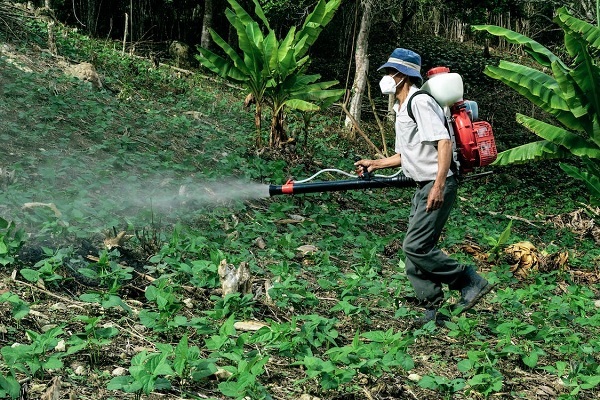Roundup’s Impact on Lehi’s Agricultural Industry: A Closer Look
Lehi's Agricultural Industry

The agricultural industry in Lehi, Utah, has long relied on the use of Roundup, a popular herbicide made by Monsanto (now owned by Bayer), to control weeds and increase crop yields. However, concerns about the safety of Roundup have grown in recent years, with studies linking glyphosate, the active ingredient in the herbicide, to various health and environmental concerns.
In March 2015, the International Agency for Research on Cancer (IARC) determined that glyphosate, the active ingredient in Roundup, is likely a human carcinogen based on studies involving both animals and humans.
This conclusion was supported by the National Toxicology Program, which operates under the U.S. Department of Health and Human Services. The report also mentioned that glyphosate-containing formulations may be more hazardous than glyphosate alone.
As a result, many farmers and consumers in Lehi are now looking for alternative methods of weed control. This article takes a closer look at the impact of Roundup on Lehi’s agricultural industry, exploring its use, health and environmental concerns, legal issues, and the future of agriculture in the area.
Roundup Use in Lehi’s Agricultural Industry
According to an article by Deseret News, Lehi’s economy has been primarily built on agriculture, with wheat, oats, barley, cattle, sheep, and poultry being the main products. However, the use of pesticides and herbicides has also been an essential component of the agricultural industry. One widely used herbicide in Lehi and other areas of the world is Roundup, which contains the active ingredient glyphosate.
The safety of glyphosate and Roundup has been called into doubt because of concerns about potential health effects. Over the past years, several studies have suggested a possible link between glyphosate and an increased incidence of cancer in both humans and animals. As a result, many individuals have come forward to file a Roundup lawsuit against Monsanto, accusing the company of being aware of the herbicide’s risks but failing to inform users.
The mounting concerns about the safety of glyphosate and Roundup have garnered widespread support from law firms across the country, with paralegals advocating for stringent action against the manufacturers of the herbicide. One such law firm is TorHoerman Law, which is actively involved in the Roundup lawsuits and has been calling for Monsanto to be held accountable for the harm caused to individuals exposed to Roundup.
Health and Environmental Concerns
The safety of Roundup has been a topic of concern not just for Lehi’s agricultural industry but also for the global agricultural community as well.
According to the Environmental Working Group, glyphosate has been found in almost all foods tested, including common crops like oats, wheat, and corn. This is concerning because glyphosate has been linked to a range of health issues, including cancer, reproductive problems, and disruption of the endocrine system.
Glyphosate has also been linked to environmental problems, such as the destruction of milkweed, a plant crucial to the survival of the monarch butterfly. The herbicide has been found to kill milkweed, leading to a decline in the monarch butterfly population.
The Future of Agriculture in Lehi
As concerns about the safety of Roundup continue to grow, many farmers in Lehi are now seeking alternative methods of weed control that are more environmentally friendly and potentially safer for human health. Some farmers have turned to organic farming practices or other herbicides that do not contain glyphosate.
According to ConsumerNotice.org, there are a number of organic herbicides available in the United States that employ naturally occurring oils or acids to destroy weeds. These chemicals are often helpful against emerging weeds but may be ineffective against permanent weeds.
In addition to these organic alternatives, there are herbicidal soaps that employ fatty acids and industrial vinegar, which has larger quantities of acetic acid than domestic vinegar. Some young weeds have been found to be resistant to acid-based herbicides.
The future of agriculture in Lehi is likely to be shaped by these concerns, as farmers seek to balance the need for crop yields with concerns for human health and environmental sustainability.
Conclusion
The impact of Roundup on Lehi’s agricultural industry has been significant, but concerns about the safety of glyphosate have led to a growing shift towards alternative weed control methods.
As studies continue to emerge linking glyphosate to potential health and environmental risks, farmers and consumers alike are becoming more aware of the need to balance crop yields with concerns for human health and the environment.
As a result, the future of agriculture in Lehi is likely to be shaped by a continued search for safer, more sustainable methods of crop production. Ultimately, this shift towards greater sustainability could have far-reaching implications for the entire agricultural industry.
